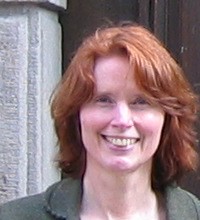You might have noticed I have not updated the News Page at Google groups - there are "technical difficulties" accessing the page. I will update it later today -as soon as the "difficulties" subside.
Meanwhile - in class we talked over Glister. We focused on his representation of digital spaces and the corresponding emergence of digital literacies - practices for interpreting and representing meaning through different media. Though Glister was sticking with a text-based meaning for the term "literacy" - from my perspective - literacy skills are also involved in interpreting images, sounds, motion and the relationships among these elements. We "read" online texts by creating meaning through understanding relationships among images, sound, motion, text, as well as by connecting to meanings those elements have had in other texts. For example, how did you "read" the Bush & Blair love song we looked at? What meaning did it have for you and how did you create it?
As I built on what Glister wrote about digital literacies - I shifted his focus on a "paradigm" shift - from an exclusive to an inclusive medium - from a place where "reading and writing" become using or consuming - to a focus on the changes in assumptions, values and beliefs that take place in the users. Digital literacies place value on learning through doing and the exploration and "mistakes" that unfold in learning through doing; on interactive collaborative creation of knowledge (truth is created rather than discovered). There is no index to the internet so elite users and communities of users create "information structures" to help the rest of us find what we need to find. This discussion of how the digital literacies differ from print literacies, how the net conditions us to make meanings in ways quite different from the ways we make meaning in the "real" world has been discussed in some detail by Collin Lankshear and Michele Knobel in their book New Literacies.
At the end of class we did some brainstorming on a list of possible topics for your research projects, and you signed up for a conference with me. I will post the times on the Google.groups page when I have access. The first appointment is for Wednesday this week. I will be looking through your blogs and will get back to you by the end of the week.
Wednesday we will be talking Rheingold. See you then.
Tuesday, February 05, 2008
Monday, February 04, 2008
Digital Literacies - a blast from the past
As you read Glister's description of digital literacies - you might want to remember that he is describing the internet and practices for communication on /through/with the interet from 1997. So how is the internet the same or different? I was particularly struck the section on changing models of access, that the model of access has changed radically from the one of commercial providers Glister describes. For another description of what internet service/communities were like "back in the day" you might want to look at this article on "Commercial Internet Providers" by Geraldine MacDonald. In reflecting on how your relationship to your internet service provider is the same or different from what Glister and MacDonald describe - think about what role the nature of the internet might have played in effecting the move from 1997 - 2008?
Also, as in your reading of Woolley, Heim, and Bolter and Grusin - look for internet topics that are "missing" from Wikipedia. Our list so far includes: remediation, hypermediacy, immediacy, Friday the 13th Virus, and from this reading I found that DELPHI was not listed (unless you count the entry on the site of the Greek Oracle.)
Also, as in your reading of Woolley, Heim, and Bolter and Grusin - look for internet topics that are "missing" from Wikipedia. Our list so far includes: remediation, hypermediacy, immediacy, Friday the 13th Virus, and from this reading I found that DELPHI was not listed (unless you count the entry on the site of the Greek Oracle.)
Subscribe to:
Comments (Atom)
